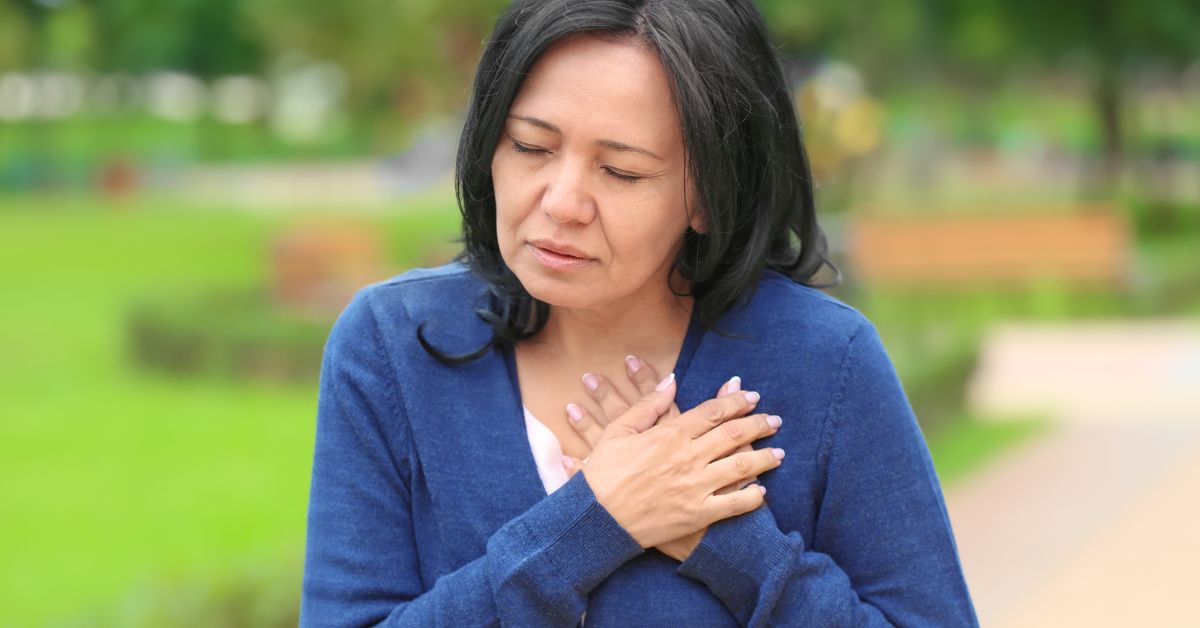Let’s face it: Quarantine is not the easiest environment for staying healthy. We may not be following our routines, diets and workout regimens like we normally would. You may even find that you’re using unhealthy habits to cope with the stress of the pandemic.
Unfortunately, many of these bad habits are also bad for your heart. And, over time, they can have a negative impact on your overall health.
To keep your heart healthy during COVID-19, start with these tips.
Start cooking again
Before quarantine, you may have relied on fast food to get you through the week. But if you find yourself spending more time at home, now is a good time to start cooking again. Eating fast food raises your bad cholesterol and your blood pressure, and it increases your risk for heart disease and stroke.
Now that you have more time at home, look for recipes for healthier versions of your favorite dishes and cook them instead. This also allows you to control how much salt, sugar and other ingredients are in your food.
Go for a walk
Inactivity can lead to cardiovascular disease over time. And studies have shown that spending time outdoors can improve your physical and mental health. Instead of sitting inside all day, take a 20-minute walk each day in your neighborhood, in your yard or at a nearby park. Remember to remain socially distanced from others in the area and follow any local or state orders regarding being in public. Also, have a face mask on had to wear as needed.
Find a healthy way to deal with stress
Stress is bad for your health, including your heart. Unfortunately, we’re living in very stressful times.
Find a healthy way to cope, like:
- Call a friend
- Listen to your favorite music
- Meditate
- Read a book
- See a therapist virtually
- Take up a new hobby
- Write in a journal
Don’t become a couch potato
You might find yourself at home more than you used to be. You may even be working from home still. This can also mean you’re sitting all day. And studies have shown that sitting too much can increase your risk for heart attack and stroke.
Even if you exercise for half an hour each day, if you’re sitting the rest of the time, it can impact your heart. Make sure you get up and walk around for about 10 minutes every hour.
Stay in touch
It can be hard not to see your friends, family, neighbors and coworkers on a regular basis. Quarantine has left many people feeling isolated. But studies have shown that loneliness and isolation can play a role in poor heart health and early death.
This means you should stay in touch with those you care about, but do it safely. Use video chat apps to reach out to your friends. Stay connected with texts and phone calls too.
Skip the alcohol and cigarettes
If you already drink too much alcohol or smoke cigarettes, now is a great time to stop. Both can negatively impact your heart health.
Smoking damages your blood vessels, increases plaque build-up and lowers your good cholesterol. Too much alcohol can raise your blood pressure and lead to heart attack and stroke. If you don’t smoke or drink excessively, don’t start relying on these vices to help you cope with the stress of the pandemic either.
Choose whole food snacks
There’s nothing wrong with having a snack or two throughout the day. You may find yourself snacking more while you’re stuck at home. And that’s not necessarily a bad thing if you’re choosing heart-healthy whole foods. Instead of processed junk food, grab a piece of fruit, a handful of nuts, some vegetables or some low-fat yogurt. Popcorn is another good option as long as it’s not loaded with salt and butter.
Keep your cardiology appointments
Finally, if you already have heart disease or another heart health problem, don’t skip your cardiology appointments. Call ahead to ask your provider’s office how they’re keeping patients safe during COVID-19. Ask about their virtual appointment options too.
You can also monitor your numbers at home, like your blood pressure and pulse, so you’ll know if something isn’t right.
Want to learn more about your heart health? Take our free, online heart risk assessment today.






